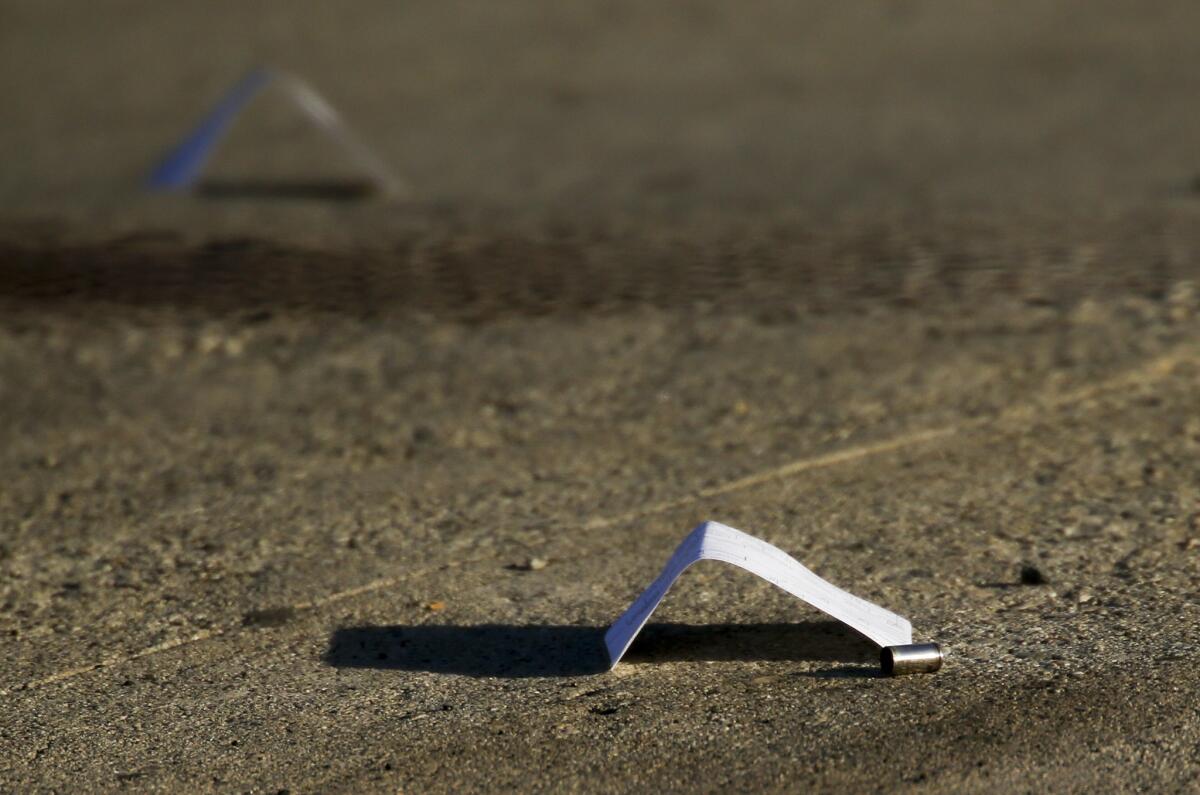White House panel to issue report critical of some forensic evidence, such as bite marks and ballistic matches

- Share via
Reporting from Washington — A presidential commission will recommend that federal judges stop allowing expert witnesses to link guns, blood and shoe prints to criminal suspects because such testimony is not based on sound science, according to a draft report obtained by The Los Angeles Times.
The report by the President’s Council of Advisors on Science and Technology is especially critical of subjective testimony by experts linking evidence collected at crime scenes to specific people or things, in particular bite marks to a suspect’s teeth or shoe impressions to specific footwear.
In what is likely to be its most controversial finding, the report states that analysis linking firearms to bullets and shell casings “falls short” of scientific standards for admission as evidence. If judges permit such testimony, the report says, they should tell jurors that error rates by firearms examiners are higher than would be expected.
‘It has become apparent, over the past decade, that faulty forensic feature comparison has led to numerous miscarriages of justice.’
— Presidentâs Council of Advisors on Science and Technology
The report also calls into question DNA analysis of “complex” mixtures of human fluid, such as those from puddles of blood from multiple people, saying such tests fail to meet rigorous scientific standards.
The council’s investigation is the latest by a government agency or scientific body that calls into question the underpinnings of scientific evidence that helped produce convictions later determined to be wrongful.
“It has become apparent, over the past decade, that faulty forensic feature comparison has led to numerous miscarriages of justice,” according to the draft report dated September 2016. “It has also been revealed that the problems are not due simply to poor performance by a few practitioners, but rather to the fact that the reliability of many forensic feature-comparison methods has never been meaningfully evaluated.”
Kristin Lee, a White House spokeswoman, declined to discuss the draft, noting that “no final version of the report has been produced.”
The council, Lee said, will discuss the draft today and a final version of the report will be released in coming weeks.
Though advisory, the report — which could have broad implications throughout the the American court system — has already met stiff resistance from Justice Department officials concerned it is being produced by a group that has little understanding of forensic science and has no forensic scientists as members, according to current and former U.S. law enforcement officials.
The officials said they were particularly irked that the group was calling into question firearms evidence, which has long been considered grounded in science by judges and appeals courts.
Melanie Newman, a spokeswoman for the department, declined to comment.
John Walsh, former U.S. attorney in Colorado, said he was “surprised and concerned” by the commission’s findings. He said the Justice Department had been working for years to better evaluate potential evidence and fairly explain its meaning and limitations to jurors.
Jim Pasco, executive director of the National Fraternal Order of Police, was briefed on the recommendations and said it appeared to be based on a “half-baked model” that “calls into question technologies” that have long been used in court.
Twitter: @delwilber
More to Read
Sign up for Essential California
The most important California stories and recommendations in your inbox every morning.
You may occasionally receive promotional content from the Los Angeles Times.














